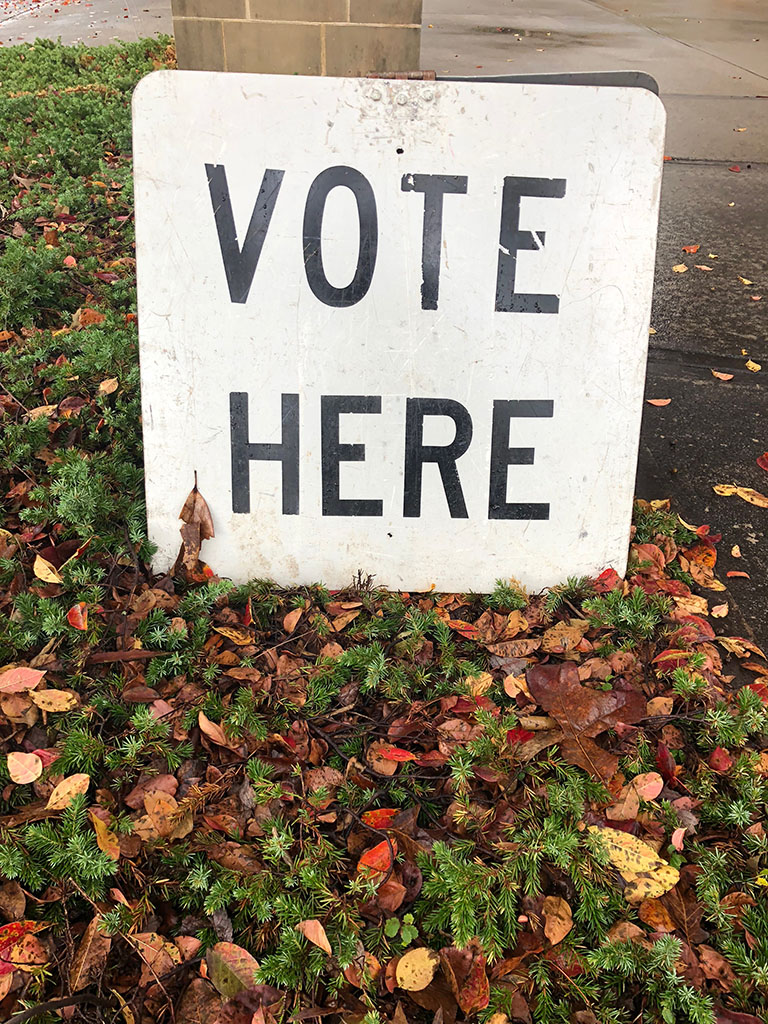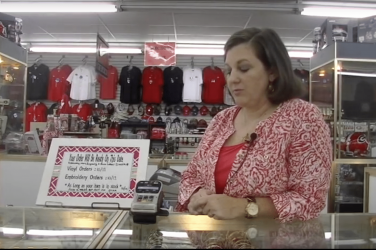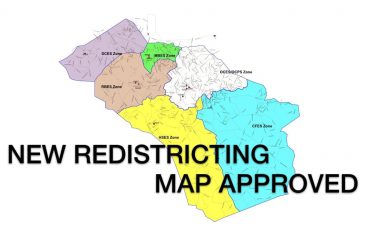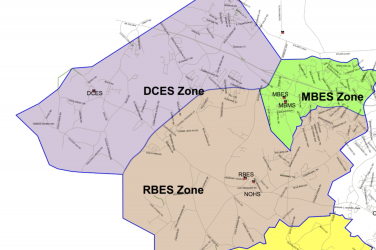The 2020 general election is just days away, and despite the surge in early voting numbers, many voters will choose to vote on Election Day, which is Nov. 3. Voting in person on Election Day comes with certain rules and guidelines to ensure a fair voting procedure. Here are things that you as a voter should know going into Election Day.
Why It’s Newsworthy: Many voters are unaware of rules that are enforced when voting, so it’s important that voters are aware of any rules or guidelines so they’re not surprised or unable to vote on Election Day.
Where Can I Vote?
There are a couple of things you can do in order to find out where you can/should vote. You can:
- Call the Georgia Secretary of State’s Office at (404) 656-2871.
- Go to “My Voter Page” and enter your information to find out where your polling location is, which you also find on the Georgia Secretary of State’s Website under the “Where Do I Vote Tab.”
- Call your local Board of Elections in the county you’re registered to vote in.
The Georgia Secretary of State’s Office is a useful tool when looking for information regarding voting and elections in general. Also, you can use the “My Voter Page” to confirm that you’re registered to vote.
What Time Can I Go Vote?
Voting hours are the same everywhere in Georgia, no matter where you live. You can vote between 7 a.m. and 7 p.m. at your polling location. Polls will be open from 7 a.m. to 8 p.m. in cities that have a population of 300,000 people or more. You can learn more on Ballotpedia, an organization designed to offer free information for voters.
What If I Requested An Absentee Ballot, But Decided To Vote In Person?
If you requested and received an absentee ballot by mail and then decided to go vote in person on Election Day, you would need to cancel your absentee ballot before you vote in order to prevent voter fraud.
According to the Secretary of State’s website, you can cancel the ballot if you bring the ballot to the polls and give it to the polling manager of the polling location in which your name is on the elector’s list. You would then be able to vote regularly.
If you have not yet received your ballot or the registrar’s office has not received it yet, you can still cancel it. You can do so by appearing in person before the registrar or absentee ballot clerk and making a request to have the ballot canceled. You would then be able to vote regularly.
If you already voted on your ballot and returned the voted ballot to the registrar’s office, you cannot have it canceled; therefore, you cannot vote in person. You can learn more by following this link and scrolling to page six.
Do I Have To Wear A Mask At Polling Locations?
Because of an executive order signed by Gov. Brian Kemp updating COVID-19 guidelines on Oct. 15, 2020 (order can be viewed on the Governor’s website), local governments are prohibited from enforcing mask requirements inside of polling locations. Voters are encouraged to wear masks and practice social distancing; however, it is not mandated.
What Do I Need In Order To Vote?
Georgia law requires that voters have acceptable photo identification in order to vote. There are six acceptable forms of ID:
- Any valid state or federal government issued photo ID, including a free ID Card issued by your county registrar’s office or the Georgia Department of Driver Services
- A Georgia Driver’s License, even if expired
- Valid employee photo ID from any branch, department, agency, or entity of the U.S. Government, Georgia, or any county, municipality, board, authority or other entity of this state
- Valid U.S. passport ID
- Valid U.S. military photo ID
- Valid tribal photo ID
If you don’t have any of these forms of ID, you can obtain a free voter ID card that’s provided by your county’s registrar’s office. You can also obtain one through the Georgia Department of Driver Services.
In order to obtain a voter ID card, you must provide the following:
- A photo identity document or approved non-photo identity document that includes full legal name and date of birth
- Documentation showing the voter’s date of birth
- Evidence that the applicant is a registered voter
- Documentation showing the applicant’s name and residential address
You can check the Georgia Secretary of State’s website for the official guidelines and the Georgia Department of Driver Services website for more information on obtaining a free voter ID card.
What Does The Voting Procedure Look Like? How Does It Work?
The specifics of voting procedure are largely dependent on which county you live in; however, due to COVID-19, procedures might look a little different. Generally, though, it will look like this:
- After waiting in line, a poll worker with a poll pad will scan your driver’s license or whatever form of acceptable ID you choose to bring with you on Election Day. You can view what forms of ID are acceptable on the Georgia Secretary of State’s website or scroll up in this article.
- Once you have provided your ID, you will receive a voter card that you will use to vote and go into a voting room where the voting machines are kept.
- You will receive instruction on how to use the machines correctly.
- Once you get to the front of the line and a machine becomes available, go use it and VOTE.
- Once finished, you will have a chance to review your ballot if needed.
- You will take your ballot to a scanner where a poll worker will instruct you to scan and take photos of the ballot. You should receive confirmation that your ballot was counted successfully.
(The above procedure is Jackson County’s voting procedure from Board of Elections Director Jennifer Logan. Not every county will have exactly the same procedure.)
Unexpected Rules and Guidelines When Voting
The biggest rule when it comes to voting in person on Election Day is the prohibition of cell phones in the voting room. You will be instructed to turn off your cell phone after you receive your voting card but before you vote. While you’re waiting in line, you should go ahead and turn your phone off or leave it in the car, so it doesn’t become a problem later.
How Can I Report A Voting Issue?
If you experience or see someone else experience potential voter fraud or suppression, you can do one of two things — or both. You can call the Secretary of State’s Voter Fraud Hotline at (877) 725-9797, or you can fill out a form on the Secretary of State website.
I’m Just Voting For Who I Want To Become President, Right?
Some voters forget there are other elections on the general election ballot, and often, there are also amendments to vote on. Voters should learn what will be on their ballot on Nov. 3.
Specifically in Georgia, both U.S. Senate seats are up for election this year, along with State Senate and House seats. All registered voters should receive a sample ballot in the mail to review prior to voting, and you can also view one on the state of Georgia website or on your “My Voter Page.”
What If I Can’t Vote On Election Day?
If for some reason you’re not able to vote on Election Day, there is still a way for you to vote. Provisional ballots allow you to cast a ballot in person, even if all the requirements for doing so cannot be met at the time. The provisional ballot will count if the issue at hand is resolved within three days after Election Day.
There are three reasons why you would need to vote by provisional ballot, per the Secretary of State website:
- You are unable to show one of the required forms of photo ID when you vote in person.
- When you first registered to vote in Georgia, you registered by mail, did not provide any identification at that time, and are unable to present acceptable identification the first time you vote in person.
- Your name does not appear on the list of registered voters in the precinct.
You may also vote by provisional ballot if you arrive at the polling location after they’ve closed the polls. So if your polling location closed at 7 p.m. and you arrived after that time, you would vote by provisional ballot and have three days to submit it.
Alexander Merritt is a senior majoring in journalism at the Grady College of Journalism and Mass Communication at the University of Georgia.









Show Comments (0)